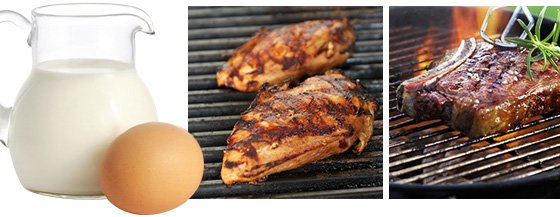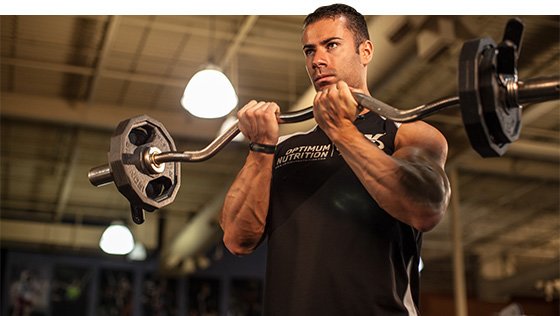Muscle-building mistake 1: You don't eat enough
I give every new client a simple analogy: Can you build a house with blueprints, construction workers, but no raw materials? Nope.Muscle doesn't appear by magic. Muscle requires the right amount of nutrients to grow. That includes protein, carbs, and fat. If you don't eat enough, your body can't use calories for repair and growth. You can lift weights until you're blue in the face, but without excess calories, resistance training won't affect your muscle mass.
I'm not saying you should order pizza and eat an entire gallon of ice cream. Plan your meals and learn how many calories you need for a small surplus. Otherwise, you might add too much excess fat. You don't what that kind of size.
Muscle-building mistake 2: You don't eat enough protein
Many people, particularly women, don't consume enough protein given their daily activity. For athletes and people trying to build muscle, I recommend 1.3 to 1.5 grams of protein per pound of body weight. For people trying to maintain good health and their current body weight, 1.0 to 1.2 grams should work.
The more you stress your body, the better your nutrition needs to be. Each source of protein—dairy, beef, poultry, seeds, fish, eggs, etc.— contains different amino acid profiles, so consume a variety of protein. Eating a full spectrum of aminos can be highly beneficial to your muscle-building goals.
Muscle-building mistake 3: You don't train intensely enough
If you don't train with intensity, your muscles won't get bigger or stronger.I see many people, especially women, going too light in the gym. If you think curling those 5-pound dumbbells will tone your arms, think again. Lift with purpose and power; don't just go through the motions. Go hard and heavy enough to challenge your body beyond its normal capacity. That's when change happens.
Muscle-building mistake 4: You don't rest or sleep enough
What you do in the gym causes your muscles to grow, but change doesn't happen until you're resting or sleeping. One major hormone responsible for this change is human growth hormone (HGH). Our HGH levels are highest when we sleep.Moreover, many studies suggest an association between a lack of sleep and high cortisol levels. Cortisol is a catabolic hormone that can break down muscle tissue. It's exactly what you don't want if you're trying to build mass. Cortisol is also linked with stress, which often occurs when you don't get enough shut-eye.
You charge your phone at night, right? Do the same for your body so it functions at its best.
Muscle-building mistake 5: Inconsistency
In college, I remember seeing a bunch of guys training during the day. But come the night, I'd see those same guys with pizza and beer in their hands. If you're not consistent with your nutrition, training, and rest, you'll never achieve your goals. Consistency is applying all the right factors to create the optimal environment for your body to grow.
"Consistency is applying all the right factors to create the optimal environment for your body to grow."
As time went by, many of the guys I saw training weren't getting any
bigger. I was. A few came up and asked me if I was "taking something,"
because I was having better results with less time in the gym. My answer
was always the same. I told them, "You can't give 100 percent in the
gym and only 40 outside of it." There's nothing in beer that will help
you build muscle, even if you're bulking "dirty." 